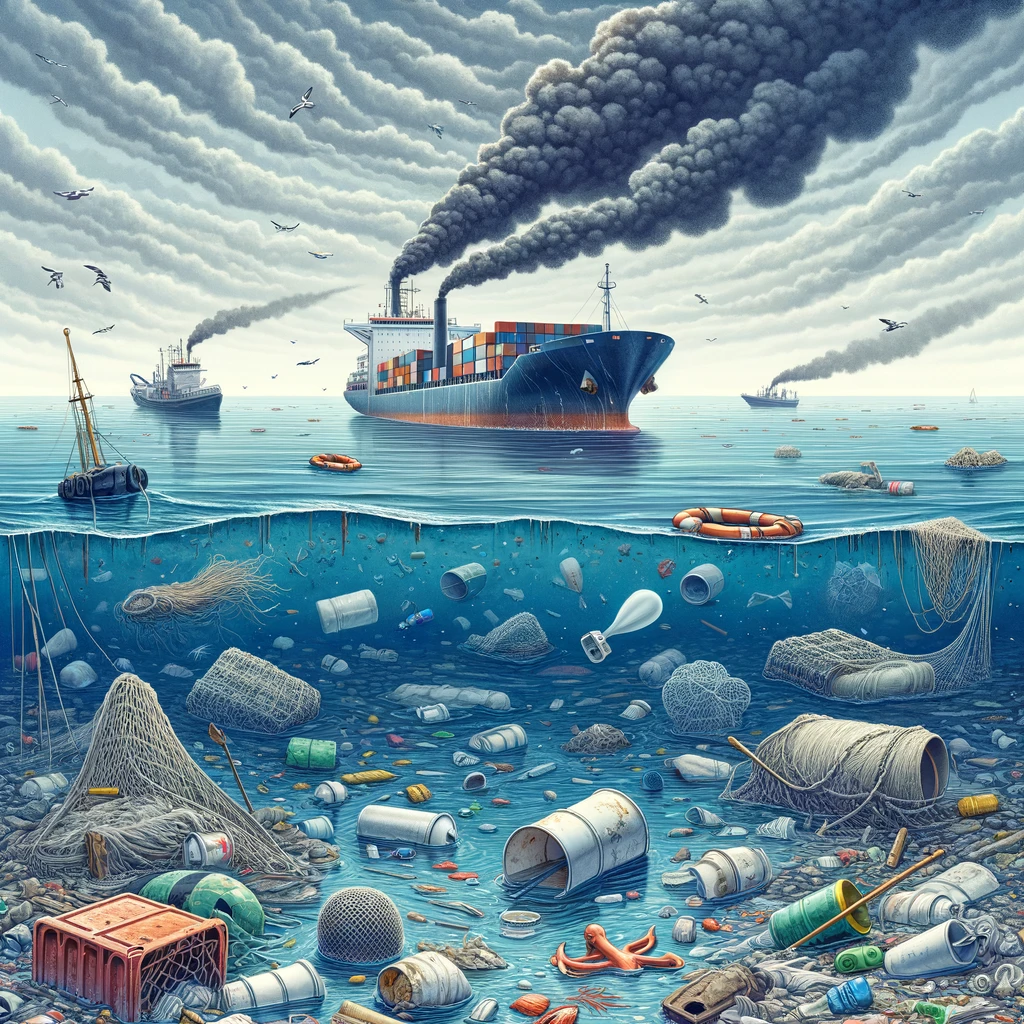Marine pollution is a major environmental problem that can have a significant impact on marine ecosystems, human health, and the economy.

There are a number of emerging issues in maritime pollution law that are being grappled with by policymakers and legal experts.
How big of an issue is marine pollution?
Marine pollution is a major problem that is affecting oceans and waterways around the world. It is estimated that every year, 8 million tons of plastic waste enter the ocean, and that number is expected to increase to 12 million tons by 2025. Other major pollutants include oil, sewage, and agricultural runoff.
What are the common types of marine pollution?
The most common types of marine pollution include:
- Oil pollution: Oil pollution can be caused by accidents, such as oil spills, or by intentional discharges, such as from ships that are cleaning their tanks.
- Plastic pollution: Plastic pollution is a major problem that is affecting oceans and waterways around the world. Plastic can be ingested by marine animals, which can kill them. It can also break down into smaller pieces that can harm marine life.
- Sewage pollution: Sewage pollution can be caused by untreated sewage being discharged into waterways. It can contain harmful bacteria and viruses that can make people sick.
- Agricultural runoff: Agricultural runoff can contain fertilizers, pesticides, and other chemicals that can pollute waterways. It can also contain sediment that can smother coral reefs and other marine life.
What are the challenges of marine pollution?
There are a number of challenges to addressing marine pollution, including:
- The vastness of the ocean makes it difficult to monitor and clean up pollution.
- Marine pollution can be difficult to track and measure.
- There is a lack of international cooperation on marine pollution.
- There is a lack of funding for marine pollution prevention and cleanup.
The legal consequences of marine pollution can vary depending on the specific circumstances. However, in general, individuals and organizations that pollute the ocean can be held liable for the damage they cause. This can include fines, imprisonment, and the requirement to clean up the pollution.
